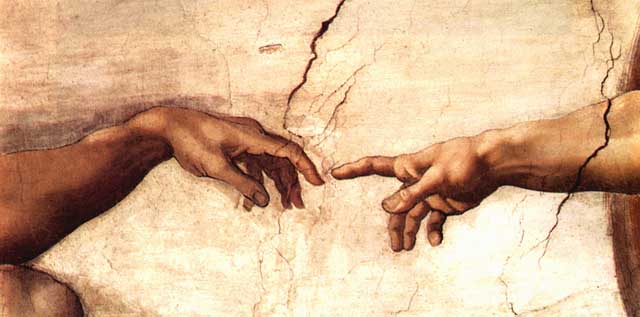As I listened to Gungor’s latest album “I am Mountain,” the theme of grasping kept coming to mind, both grasping in the knowledge sense and grasping with a tight fist. Lyrics to all the songs can be found here.
The second track, “Beat of her Heart,” has been fascinating me ever since I heard it. This song is based on the Greek myth of Orpheus and Eurydice. I love a good song that tells a moving story. The icing on the cake is that it’s in a minor key with interesting instrumental parts!
Here is an excerpt from Michael Gungor’s blog post about it:
If you don’t know the story, here’s the gist of it… There’s this musician named Orpheus who deeply loves his beautiful wife, Eurydice. One day, Orpheus is playing his lyre and she is so moved by his music that she begins dancing through a meadow. She is watched and pursued by a satyr. (Which I guess is some sort of freak-goat-man-thing) She runs from him, steps on a viper, gets bit and dies. Orpheus is deeply grieved and begins to sing so beautifully and mournfully that the gods weep and convince Orpheus to travel to the underworld to retrieve his beloved wife. On his arduous journey, he uses his music to convince the powers that be to give her back. Consent is given but only on the condition that he must walk in front of her without looking back until both had reached the upper world.
All he has to do is walk out of there and not look back. Sounds easy enough, right?
Yet, how you can he not look…? . . .
“My mind was a tempest, my doubt was a storm
I turned back to see if she really had come
Just as our eyes met, she faded from sight
That’s when I knew I would never find the beat of her heart
Or the song in mine”
Man. What a story.
I get it. I too have a hard time trusting authority figures. . . . And I have experienced great loss as a result of that part of my skeptical soul.”
To grasp, to understand and know that his wife was behind him, Orpheus looked back. In looking and knowing, he lost.

Disclaimer: These are my own impressions based on the album, not necessarily Gungor’s own intended message.
Throughout the rest of Gungor’s album, I hear the band expressing how far we really are from grasping knowledge of everything in the universe, yet holding on to God when the knowing seems out of reach. In this fallen world we have an obsession with many things; we often go to war to gain what we want. We kill and destroy human life to gain, we grasp material resources that slip through our fingers as we lose the most valuable resource – human life. We destroy what we love, want, and already have by grasping too tightly.
Adam and Eve grasped the fruit, grasped knowledge of good and evil. In grasping, they lost the Knowing of the Creator, their God. They lost the walks with God in the cool of the day, the knowledge of an innocent trust in the One who formed them out of dust. How many times have we expressed a fruitless anger at them? Yet wouldn’t we, too, have picked the forbidden fruit?
My boyfriend told a story from his childhood when his mom gave him a cute, fuzzy baby chick to hold. She told him to make sure he didn’t drop it. Instead of holding gently and firmly, he grasped tightly. The poor chick didn’t stand a chance in his hands. In grasping, in holding too tightly, he lost what he was trying to protect. He still mourns the poor chick’s life, and learned that when he grasps too firmly, he destroys what he loves.
We humans are in the habit of grasping and letting go at the wrong times. Yet Jesus, the perfect human, knew when to let go and when to hold fast.
Philippians 2:5-7 “Have this mind among yourselves, which is yours in Christ Jesus, who, though he was in the form of God, did not count equality with God a thing to be grasped, but emptied himself, by taking the form of a servant, being born in the likeness of men.”
Jesus was God. He was equal with God. Yet He did not grasp His authority so tightly that He would lose it. Reading the passage of Jesus’ temptation in the wilderness in Matthew 4, I see a Jesus who knew so firmly that the world was already His, that He did not need to greedily grasp His divine authority to prove it.
Again, the devil took him to a very high mountain and showed him all the kingdoms of the world and their glory. And he said to Him, “All these I will give you, if you will fall down and worship me.” Then Jesus said to him, “Be gone, Satan! For it is written, ‘You shall worship the Lord your God and him only shall you serve.’” (Matt. 4:8-10).
The devil offered Jesus all the kingdoms and their glory, but Jesus refused to prematurely take them by underhanded means. He had the right and authority to have bread, angels, kingdoms and glory, but did not grasp them by bowing to Satan. Instead, He obeyed the Father’s will, ultimately submitted to a disgusting, painful death, “endured the cross, despising the shame, and is seated at the right hand of the throne of God” (Heb. 12:2).
That throne shows that Jesus has glory and authority. He didn’t need to bow to Satan’s whims to obtain it; He already had it – He just had to wait, endure, and suffer to obtain it.
We, too, are supposed to run with endurance (Heb. 12:1). Not grasping doesn’t mean we have a lazy faith, or a blind faith that accepts easy Sunday school answers, but a faith that allows us to wrestle while resting in the knowledge that God knows all.
The Christian faith is a paradox. To live, we must die. To be first, we must be last. To have, we must let go.
















